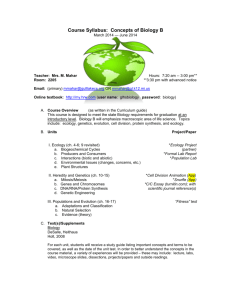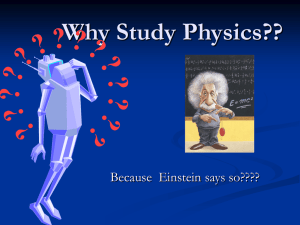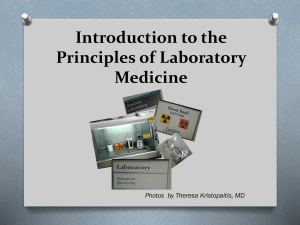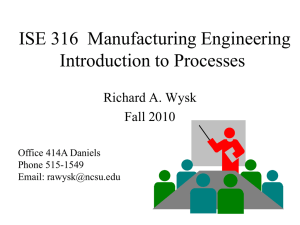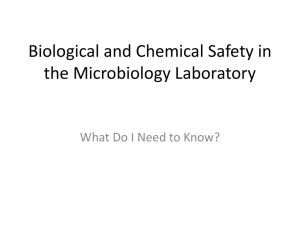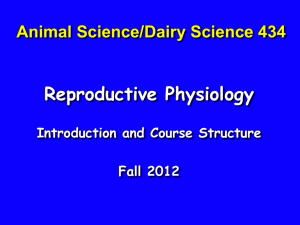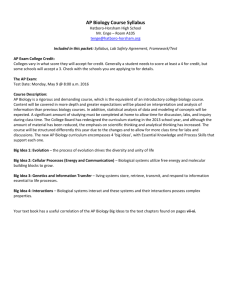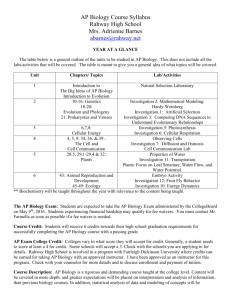How to find a lab for independent study
advertisement
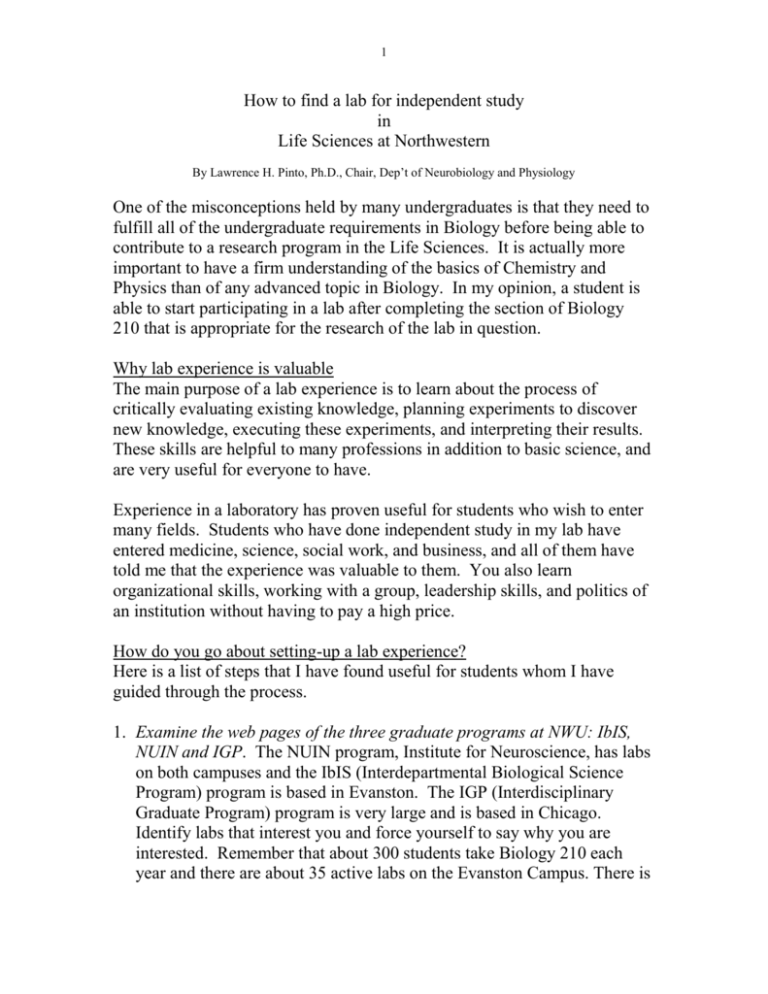
1 How to find a lab for independent study in Life Sciences at Northwestern By Lawrence H. Pinto, Ph.D., Chair, Dep’t of Neurobiology and Physiology One of the misconceptions held by many undergraduates is that they need to fulfill all of the undergraduate requirements in Biology before being able to contribute to a research program in the Life Sciences. It is actually more important to have a firm understanding of the basics of Chemistry and Physics than of any advanced topic in Biology. In my opinion, a student is able to start participating in a lab after completing the section of Biology 210 that is appropriate for the research of the lab in question. Why lab experience is valuable The main purpose of a lab experience is to learn about the process of critically evaluating existing knowledge, planning experiments to discover new knowledge, executing these experiments, and interpreting their results. These skills are helpful to many professions in addition to basic science, and are very useful for everyone to have. Experience in a laboratory has proven useful for students who wish to enter many fields. Students who have done independent study in my lab have entered medicine, science, social work, and business, and all of them have told me that the experience was valuable to them. You also learn organizational skills, working with a group, leadership skills, and politics of an institution without having to pay a high price. How do you go about setting-up a lab experience? Here is a list of steps that I have found useful for students whom I have guided through the process. 1. Examine the web pages of the three graduate programs at NWU: IbIS, NUIN and IGP. The NUIN program, Institute for Neuroscience, has labs on both campuses and the IbIS (Interdepartmental Biological Science Program) program is based in Evanston. The IGP (Interdisciplinary Graduate Program) program is very large and is based in Chicago. Identify labs that interest you and force yourself to say why you are interested. Remember that about 300 students take Biology 210 each year and there are about 35 active labs on the Evanston Campus. There is 2 a good shuttle bus that runs to the Chicago Campus and there are several hundred labs there. There are also about 40 labs total at Evanston and Children’s hospitals. You might have to travel off campus to get what you want, but the experience will be widening. 2. Send a personal, not bulk, email to each of the professors who are the Principal Investigators of the labs and ask to visit them to discuss the possibility of doing an independent study project. This email should say why you are interested and should give your year in school and a few details such as your major and your plans for the future. Your GPA is optional. If you have any work or lab experience at all showing you are reliable, it’s good to say so. Thank the profs who respond, even if they say “no,” to maintain their good will for our NU undergrads. 3. Visit all of the professors who express an interest. Find out the possible projects. Find out who are the people with whom you will be working to learn the basics. Ask what would be the expectations of the professor. Ask the professor specifically if there is a chance that you could participate in a publication (i.e., get your name on a paper) and, if so, approximately what extent of participation (hours per week, quarters of work) would be required. Find out if there are any other undergrads in the lab and write down their names. Also find out who are the grad students in the lab and write down their names. 4. After you have obtained the information in (3), make additional inquiries about the lab. Some labs are wonderful places for science but do not have a good environment for undergrads. Other labs do work that is not “hot” at the moment but have a good environment. You need the environment more than anything else at this stage. Your best bet is to ask other undergrads and grad students. Professors will not say anything even slightly negative about other professors, so try asking them indirectly. A good way is to give a list of the labs you are considering and ask which would be that professor’s top choice for you. The professor should ask you about yourself at this point before responding. Another way is to discuss topic A in lab A vs. topic B in lab B. Then the professor is able to make remarks without directly providing an evaluation of a colleague. Until you have declared a major, you won’t have an academic advisor, so you’ll have to ask professors you know in class. Never ask by email. Do it in person. Watch the professor’s facial expressions. 3 5. Visit the professor you have chosen and arrive at a clear understanding of the Prof’s expectations and your goals for the first quarter. Ask for a “lab job” that will “repay” the people in the lab for the time they spend on you. Remember, taking on students is strictly optional, and is not required for anyone and is not even rewarded directly. It is something we do because undergrads often make wonderful contributions to the intellectual life of the laboratory and are capable of being productive in research with the right set of conditions. Never pretend to know what you don’t. Check in weekly with the P.I. about your progress, even if very informally. Make sure you participate in lab meetings. Read the original literature that is recommended and follow up with lab members about the things you don’t understand. They like to explain their science to you. 6. A final note. It has been my experience that those students who make the most progress toward publication are those who spend either the summer between the Junior and Senior year or the summer between the Soph and Jr. year working in a lab. Usually the students who spend the earlier summer in a lab are able to be full-time lab aides, and they learn a lot by doing. This makes them resistant to being and feeling “helpless” when they do independent work. The students spending the last summer of college in a lab are usually able to work on their independent research full time and make a lot of progress if they get a head start during the Junior year. Following these steps will not guarantee that you will have a good experience, but to my knowledge every student who has followed these steps has profited from the experience. It will distinguish you from the crowd of people applying to professional and graduate schools if you are able to place an entry on your Resume titled “Publications.”
